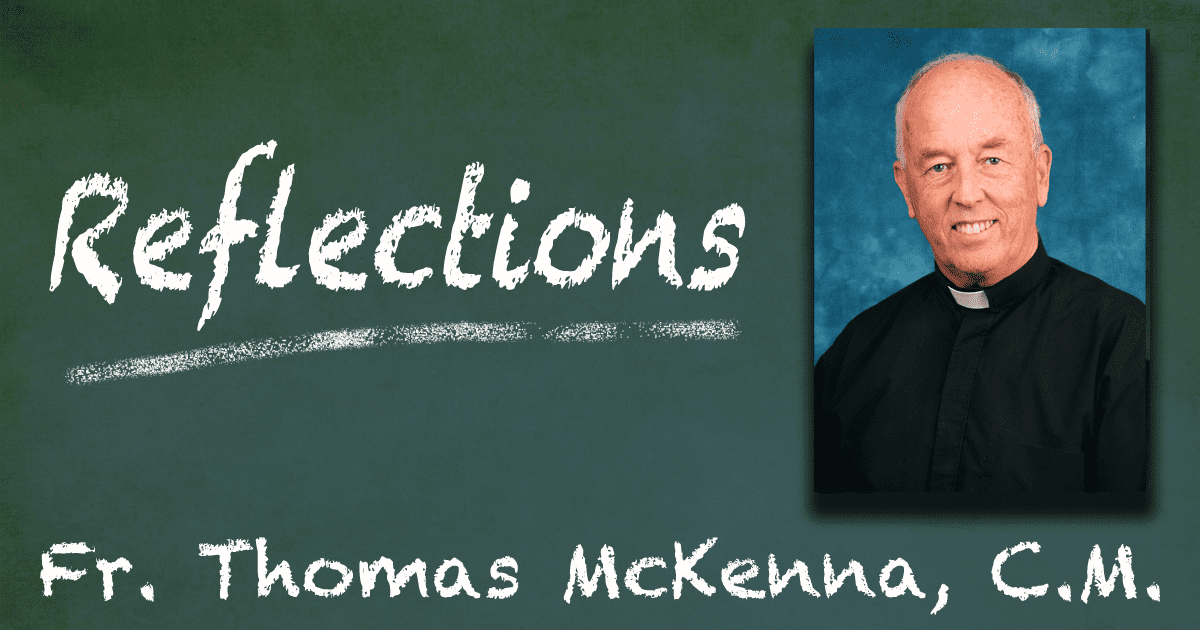Eucharistic Attitudes (Lk 9:11-17)
Years ago, I attended a burial service for a decorated WWII veteran. The ceremony was attended by an eight-person honor guard who not only read off a citation about his exemplary service, solemnly presented the flag to his family, but who stood at attention for the very soulful playing of taps. As you can imagine, most everyone there was moved — and some to tears. I remember speaking with a younger relative of the soldier afterwards who told me that the ceremony not only filled him with gratitude for what his uncle had done, but also stirred up a desire in his heart to give some service to his neighbors, especially ones who had no one to speak for them. What struck me later was how powerfully a well carried out ceremony could touch those sharing in it, how it could draw out new attitudes and even lead to resolutions to act in different ways. People were caught up into its meaning and taken along in the momentum of what was said and commemorated.
As we gather around the table of the Lord’s Supper each Sunday to celebrate the giving of his Body and Blood for us, we would do well to reflect on what it is we’re sharing in. As the pivotal act of the Christian community, Eucharist is meant to immerse us in the deepest currents of our faith. Much more powerfully than that taps ceremony, it has drawn generations of believers into the attitudes and consequences of discipleship. Vincent often emphasizes having the right mindset: “I praise God for the good dispositions He gives you to make yourself more and more pleasing in His eyes.(VII:471). What are some of the attitudes, realizations and behaviors which wholehearted sharing in this Eucharist can bring?
Most obvious is the fact that it is a meal. It is a sharing in bread and wine, a passing back and forth not just of the food and drink but more importantly a sharing of persons. Today we might style it an encounter, a person-to-person meeting of minds and hearts. So much else flows from this.
For one thing, the sharing communicates generosity. There is a giving-away, a focus on the others at the table which is expressed so movingly in Jesus’ words: “This bread and this cup is my body and blood, given up for you.”But in them are many allusions to what has gone before. A key one occurs in Luke’s 9th chapter where Jesus not only feeds the hungry crowd, but also brings his disciples in on his generosity by asking them to distribute what he’s provided. Taken into his own open-handed gesture, the Twelve are made a part of his solicitude and care for the crowd. It’s one of many Gospel scenes which underline the nudge Eucharistic sharing gives us to continue that large-heartedness and sustain that selflessness. To be included in this bountiful meal is to be prodded to go and do likewise, to give away one goods (and indeed oneself) for the sake of the other.
For another, this is a meal of welcoming – better, of welcoming-in. Jesus’ conversation with those in the room is one of inclusion. He’s gathering around not only the disciples present there (including the one whom he knows will betray him), but indeed all peoples. “This is bread and wine (my own self) given up for you and for the many” — for everyone, all races and creeds and nations. To share in this marvelous meal is to be taken into solidarity with all the peoples of this earth, to be swept up into the welcoming Jesus extends across the board to all His Father’s children.
Thirdly, this is a gathering which conveys trust. It’s done on a night when threat is in the air, when the warnings of calamity have been coming in. And yet it goes forward. Facing the unknown, the Lord Jesus nonetheless hands himself over, not just to his followers but to his loving Father. It’s a perilous meal eaten with confidence that somehow things will turn out as Jesus allows his future to fall into the hands of his dear Father. To share in this sacred meal each week is share in the trusting, in the handing over, in the confidence that God’s on our side and wants the best for each of us.
Right at the end Jesus says, “Do this in remembrance of me.” Do what in remembering him? Many things, but certainly these. Do generous selfless things. Do welcoming things, especially to the stranger. And do things that show trust in God’s goodness and care.
To the extent we allow ourselves to be taken up into it this Eucharist generates dispositions, stirs up convictions, and fosters behaviors. This ritual sacrificial meal isn’t neutral, something only to look at. It would take us along with it, draw us into its momentum, move us to do the kinds of things that really are in remembrance of Jesus, making His person and Kingdom appear in this time and this place.







0 Comments